Masters of mayhem and silencing the science
Rather than a world with strengthening ties, since 2010 they have been disintegrating. There is no peace in the Middle East, China aggressively prodded its neighbours and terror came home. We look at the past 14 years.
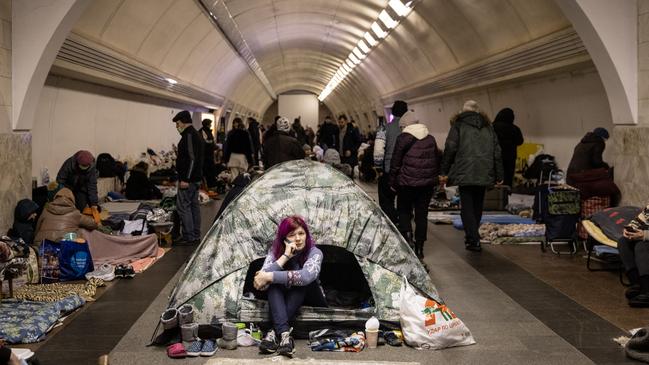
GRAND MASTER OF MAYHEM
- By Cameron Stewart. First published February 25, 2022
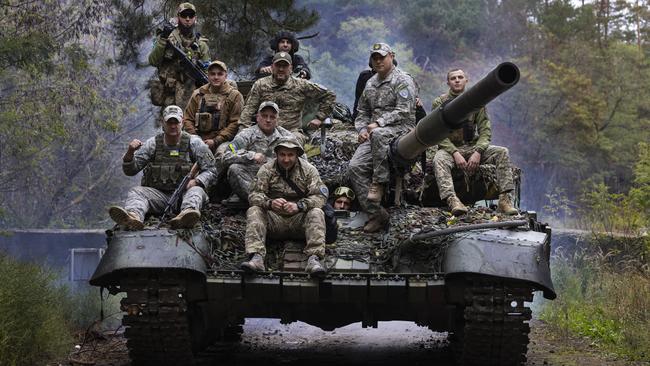
Vladimir Putin has embarked on his biggest gamble, one that will redraw the map of Europe, trigger devastating war and partly restore his beloved Soviet empire.
The Russian President has orchestrated an unspeakable carnage as innocent Ukrainians cower under a brutal onslaught of bombs and tanks in scenes more reminiscent of Hitler’s invasion of Poland than modern Europe.
The rest of the world, including Australia, is watching in jaw-dropping horror at Russia’s invasion, hurling its collective disgust at Putin and threatening to impose ever more sweeping financial and economic sanctions on Moscow.
And yet the West is all but powerless to stop this war. It can only watch on helplessly as Putin drives a stake through the heart of those who naively believed the fall of the Berlin Wall three decades ago marked the end of Russian despots. An unprovoked attack on a major European power was confined to the history books, or so we thought.
What is remarkable about his attack on Ukraine is how Putin, a lifelong risk-taker, has managed to turn the odds in this crisis so heavily in his favour. At least for now.
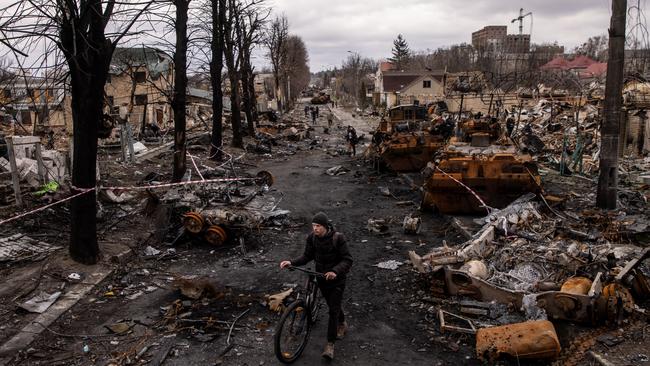
The US and NATO will not bend in their refusal to intervene militarily to defend Ukraine, which is not a NATO member.
Even if there were a will to try to defend Ukraine militarily, a war fought right on Russia’s border would come at a cost in lives that no Western nation would accept.
From his vantage point in the Kremlin, Putin sees nothing but opportunity. He sees a divided Europe which too often seemed more concerned about losing access to Russian gas supplies than it was about the invasion of a sovereign nation. He sees a polarised America, weary of foreign wars with an ageing President who is still damaged by the chaotic US withdrawal from Afghanistan.
With China, Putin has worked assiduously to forge closer links with Beijing and neutralise any opposition on Ukraine.
In the meantime, Putin has methodically ensured that his invasion, which began in earnest on Thursday, is likely to be a military rout given that he had surrounded Ukraine with more than 170,000 Russian troops backed by tanks, missiles and overwhelming firepower.
This week, Putin put the final touches on his invasion plans by giving a tortured re-imagining of Ukrainian history to try to argue that Kyiv had no rights as a sovereign nation.
Putin’s message to Russians is that an invasion of Ukraine is really not an invasion of another country, but a reclaiming of a lost part of Russia, like a spiritual reunion of long-lost friends.
It is an argument that sinks under scrutiny but which exploits popular nostalgia for the Soviet empire, the loss of which Putin has called “the greatest geopolitical disaster of the 20th century”.
Putin has confected this Ukraine invasion like a Russian grand master in chess, carefully moving his pieces into place over many months to prepare for this terrible moment.
He is on the cusp of something he has spent decades longing for.
HOW COVID-19 SCIENCE WAS SILENCED
- By Sharri Markson. First published July 29, 2023

America’s top infectious diseases adviser, Anthony Fauci, deliberately decided to downplay suspicions from scientists that Covid-19 came from a laboratory to protect his reputation and deflect from the risky coronavirus research his agency had funded, according to his boss, one of the most senior US health officials during the pandemic.
In an exclusive interview, Robert Kadlec – former assistant secretary for preparedness and response at the US Department of Health – told The Weekend Australian that he, Dr Fauci and National Institutes of Health director Francis Collins privately discussed how to “turn down the temperature” on accusations against China in the early days of the pandemic while they were trying to encourage Beijing to co-operate and share a sample of the virus.
But the senior US health official – who worked for George W. Bush and Donald Trump and went on to lead American efforts to develop a Covid-19 vaccine – said Dr Fauci mostly kept his knowledge of virologists’ concerns about a lab leak from Wuhan to himself.
The Weekend Australian revealed in 2021 that the National Institutes of Health and other US agencies funded 65 scientific projects at the Wuhan Institute of Virology over the past decade, many involving risky research on bat coronaviruses.
Dr Kadlec’s comments give the closest insight to date on how Dr Fauci – who led coronavirus policy for two presidents and influenced the worldwide approach to the pandemic – handled the link between Covid-19 and China.
“I think Tony Fauci was trying to protect his institution and his own reputation from the possibility that his agency was funding the Wuhan Institute of Virology researchers who, beyond the scope of the grants received from the National Institutes of Health, may have been working with People’s Liberation Army researchers on defensive coronavirus vaccines,” Dr Kadlec said.
In his first ever media interview, Dr Kadlec added: “We think vaccine research resulted in the pandemic – that vaccine research was the proximate cause.”
CLOSE BRUSH WITH TERROR
- By Chris Kenny. First published December 16, 2014

The scene inside the Lindt cafe at 9.35 this morning was typical – as I gathered my takeaway coffee office workers sat around tables chatting. By the time I finished a radio chat from the seats outside in Martin Place five minutes later, a horrific situation had unfolded.
Three motorcycle police arrived and a woman still clasping her mobile phone to her ear was telling them about a gunman inside. She had tried to enter the cafe just after I had walked out but the automatic sliding glass doors were shut. She thought the cafe was closed but saw a man with a blue bag and what she thought was a shotgun.
As police quickly swarmed and cleared the area, I turned to see a man against the window, facing out with his hands raised. At first I was relieved, thinking this was the gunman responding to police – but soon came the awful realisation that customers were being forced against the windows.
Police pushed shoppers and commuters back as onlookers strained to see what was going on. Within 10 minutes carloads of police were on the scene, wearing bulletproof vests and some with handguns drawn, telling colleagues that specialist officers were on the way.
Soon traffic along Elizabeth and Phillip streets was blocked and a massive emergency operation was under way.
My fellow customers – fellow Australians – are now in a horrific situation, the sliding doors of the cafe playing a brutal game of chance and fate.
It is a central, busy location, above a crucial train station and across the road from a television network newsroom – whoever has unleashed this was not after cash but impact. Terror is in the heart of Sydney right now.
- Reflections by Alan Howe, history editor
WAR, CHINA, AND COVID-19
Xi Jinping arrived in Australia in 2010 as vice-president of China to talk investment, particularly in our north, and was warmly welcomed by prime minister Kevin Rudd who addressed the delegation in Mandarin and they laughed along with his jokes. Xi smiled.
Rudd had less to smile about. His enemies in Labor were scheming to replace him with Julia Gillard and three days later he withdrew from a leadership ballot, Gillard becoming our first female prime minister.
But Xi was on the way up and when he returned in 2014 he addressed a joint sitting of parliament as the President of China. He appeared on the front page of The Australian that November sharing an animated handshake with prime minister Tony Abbott. The Australian was positive about Xi’s plans for a grand, beneficial joint future. Xi even spoke of a “prosperous and democratic” China by 2050 that was “unshakeable” in its support for peace, and he urged Australians to turn our growing commercial relationship into a strategic partnership.
That’s not how things panned out. Under Xi, China has become increasingly aggressive and militaristic, and a generation of combative and excitable “wolf warrior” ambassadors has attacked the West, particularly Australia, ever since. Meanwhile, it has built the world’s largest navy and army; soon it will boast the biggest air force. It also reverted to its secret ways, best demonstrated with the outbreak of Covid in 2019. Its actions, and those of the compliant World Health Organisation, were summed up by journalist Sharri Markson who wrote in The Australian in September 2021: “(The) WHO … lavished praise on Xi Jinping for his transparency when in fact China was engaging in an astronomical cover-up involving the destruction of early virus samples and the arrest and disappearance of whistleblowers. When the US, Australia and New Zealand stopped flights from China, (the WHO) criticised the travel bans as unnecessary and … would cause ‘stigma and fear’.”
By 2022, most of the world had suffered the virus. The death toll stands at more than seven million. Scott Morrison – Australia’s third Liberal prime minister in less than five years – declared Covid-19 a global pandemic 10 days before the WHO, banned flights from China and supported an inquiry into its origins. Australia was labelled racist and China’s mouthpiece newspaper claimed we were collaborating with the US “smearing China over the Covid-19 pandemic”.
China’s bellicose response – breaking the World Trade Organisation rules (we had supported its admission in 2001) – included import restrictions on timber, coal, barley and wine costing Australian producers billions.
In January 2019, Xi said Taiwan’s unification with the mainland was inevitable, and that he would use force if needed. Meanwhile, perhaps ruminating on ancient grievances, China aggressively prodded its neighbours’ airspace and territorial waters. Last year, China published a map claiming ownership of almost all of the South China Sea stretching to the borders of Malaysia, the Philippines, Indonesia, Brunei and Vietnam.
Rather than a world with strengthening ties, they were disintegrating. Weeks after Russia’s Vladimir Putin brutally annexed the Crimean Peninsula from Ukraine, forces he controlled shot down Malaysian Airlines Flight 17, en route from Amsterdam to Kuala Lumpur, killing 289 passengers including 38 Australians. In February 2022, he launched a full invasion of Ukraine.
Islamic terrorism against the West erupted across the globe: the Charlie Hebdo magazine attack killed 12; later attacks across Paris in 2015 killed 137 people; the Nice truck attack (87); the Manchester Arena bomb (22) and London’s Westminster and London Bridge attacks (17); the Berlin Christmas market (12); and Orlando’s Pulse nightclub (49).
Australia was not spared, with a deadly attack on the Parramatta Police Centre and the Lindt Cafe siege in December 2014.
In the Middle East, violence erupted with the massacre of 1200 Israelis on October 7, 2023, with more than 240 taken hostage. The subsequent war against Hamas in Gaza was believed to have cost more than 30,000 lives.
Two of the 20th century’s most beloved leaders, Queen Elizabeth and Nelson Mandela, became friends soon after Mandela left jail after 28 years, kept there by the South African apartheid regime that had withdrawn from her Commonwealth in 1961.
The pair remained close and playfully informal. At their final encounter, Mandela said: “Elizabeth, you’ve lost weight.”
He died in 2013 aged 95; she died in 2022 aged 96.

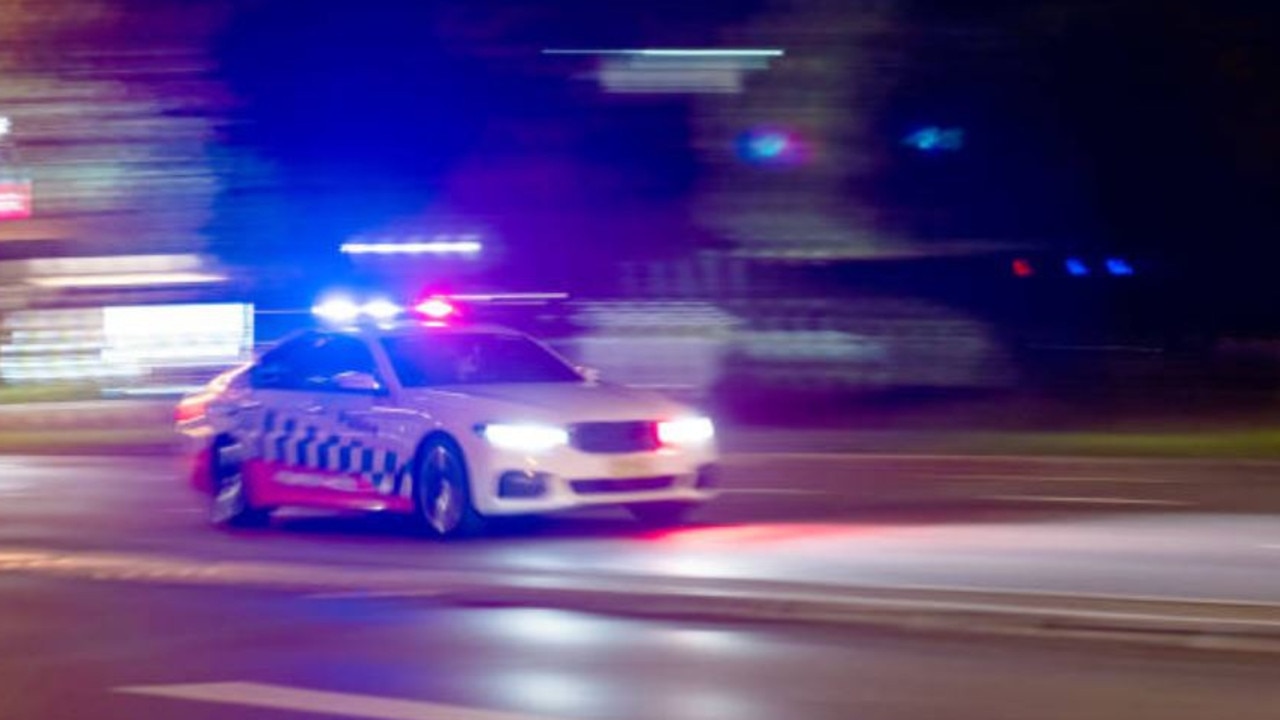
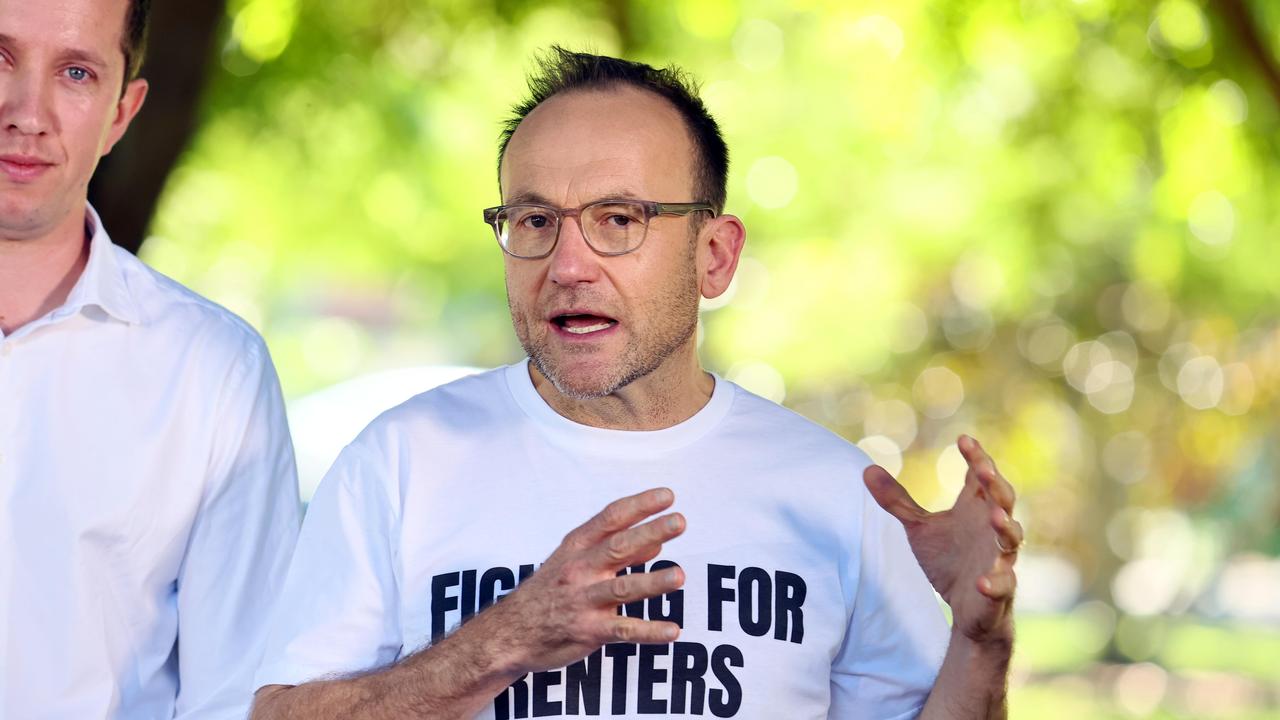
To join the conversation, please log in. Don't have an account? Register
Join the conversation, you are commenting as Logout